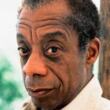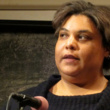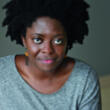Heavy: An American Memoir
(Libby/OverDrive eBook, Kindle)
Available Platforms
Description
More Details
Excerpt
Similar Titles From NoveList
Similar Authors From NoveList
Published Reviews
Booklist Review
*Starred Review* Often in his spectacular memoir, Laymon (Long Division, 2013) addresses ""you"": his mother, a scholar and university professor who gave him the ""gifts of reading, rereading, writing, and revision."" Laymon, now a university writing professor himself, recalls the traumas of his Mississippi youth. He captures his confusion at being molested by his babysitter and at witnessing older boys abuse a girl he liked; at having no food in the house despite his mother's brilliance; at being beaten and loved ferociously, often at the same time. His hungry mind and body grow, until, like a flipping switch, at college he's compelled to shrink himself with a punishing combination of diet and exercise. And that's barely the start of his life story thus far, with remembered moments in book-lined rooms and smoky casinos, conversations that leap from the page, the digits on a scale, and scrolling sentences. Laymon applies his book's title to his body and his memories; to his inheritance as a student, a teacher, a writer, an activist, a black man, and his mother's son but also to the weight of truth, and writing it. So artfully crafted, miraculously personal, and continuously disarming, this is, at its essence, powerful writing about the power of writing.--Annie Bostrom Copyright 2018 Booklist
Publisher's Weekly Review
In this stylish and complex memoir, Laymon, an English professor at the University of Mississippi and novelist (Long Division), presents bittersweet episodes of being a chubby outsider in 1980s Mississippi. He worships his long-suffering, resourceful grandmother, who loves the land her relatives farmed for generations and has resigned herself to the fact of commonplace bigotry. Laymon laces the memoir with clever, ironic observations about secrets, sexual trauma, self-deception, and pure terror related to his family, race, Mississippi, friends, and a country that refuses to love him and his community. He becomes an educator and acknowledges the inadequacies in his own education, noting that his teachers "weren't being paid right. I knew they were expected to do work they were unprepared to start or finish." He also writes about living among white people, including a family for whom his grandmother did the laundry: "It ain't about making white folk feel what you feel," he quotes his grandmother. "It's about not feeling what they want you to feel." His evolution is remarkable, from a "hard-headed" troubled teen to an intellectually curious youth battling a college suspension for a pilfering a library book to finally journeying to New York to become a much-admired professor and accomplished writer. Laymon convincingly conveys that difficult times can be overcome with humor and self-love, as he makes readers confront their own fears and insecurities. (Oct.) c Copyright PWxyz, LLC. All rights reserved.
Library Journal Review
Race, politics, poverty, addiction, body issues, family, manhood, feminism, education-this book has it all. Laymon (Long Division; How to Slowly Kill Yourself) breaks down what it means to be a large black boy growing up in Mississippi, exploring the politics and policing of black male bodies, the heartache of black excellence and white privilege, the conflict that comes with loving an abusive parent and stepping away to save yourself. As beautiful as it is heartbreaking, this examination of language and place takes readers into Laymon's childhood as the son of a strong black woman who is unable to reconcile her child's pain with her own. Sexual abuse and anorexia are examined with care and attention, as are the emotions and consequences attached to these experiences. VERDICT This powerful, passionate narrative is hopeful but real, reading like a confessional with no sugarcoating. If you care about black lives and black experience, this is a must-read. Excellent for readers interested in family dynamics, race relations, higher education, and body awareness.-Gricel Dominguez, Florida International Univ. Lib., Miami © Copyright 2018. Library Journals LLC, a wholly owned subsidiary of Media Source, Inc. No redistribution permitted.
Kirkus Book Review
A challenging memoir about black-white relations, income inequality, mother-son dynamics, Mississippi byways, lack of personal self-control, education from kindergarten through graduate school, and so much more.Laymon (English and Creative Writing/Univ. of Mississippi; How to Slowly Kill Yourself and Others in America, 2013, etc.) skillfully couches his provocative subject matter in language that is pyrotechnic and unmistakably his own. He also uses an intriguing narrative form, directly addressing his divorced mother, a poverty-stricken single woman who became a political science professor at Jackson State University. As an obese black youngster, the author had to learn to absorb cruelty not only because of his size, but also because of his dark skin. The relentlessness of his mother's loveshe expected academic and behavioral perfection and employed corporal punishment with a beltshaped Laymon's character in ways both obvious and subtle. One of the main elements of the memoir is his resentment at white privilege and his techniques to counter it. "Every time you said my particular brand of hardheadedness and white Mississippian's brutal desire for black suffering were recipes for an early death, institutionalization, or incarceration, I knew you were right," writes the author. Of all the secondary themes, the impact of addictionfood, gambling, and drug use, but especially foodranks next. Laymon hated himself for topping 300 pounds as a teenager. Then he got fanatical with exercise and near starvation, dropping down to 170followed by a relapse of sorts as he began to approach 300 again. Far more than just the physical aspect, the weight he carries also derives from the burdens placed on him by a racist society, by his mother and his loving grandmother, and even by himself. At times, the author examines his complicated romantic and sexual relationships, and he also delves insightfully into politics, literature, feminism, and injustice, among other topics.A dynamic memoir that is unsettling in all the best ways. Copyright Kirkus Reviews, used with permission.
Booklist Reviews
*Starred Review* Often in his spectacular memoir, Laymon (Long Division, 2013) addresses you: his mother, a scholar and university professor who gave him the gifts of reading, rereading, writing, and revision. Laymon, now a university writing professor himself, recalls the traumas of his Mississippi youth. He captures his confusion at being molested by his babysitter and at witnessing older boys abuse a girl he liked; at having no food in the house despite his mother's brilliance; at being beaten and loved ferociously, often at the same time. His hungry mind and body grow, until, like a flipping switch, at college he's compelled to shrink himself with a punishing combination of diet and exercise. And that's barely the start of his life story thus far, with remembered moments in book-lined rooms and smoky casinos, conversations that leap from the page, the digits on a scale, and scrolling sentences. Laymon applies his book's title to his body and his memories; to his inheritance as a student, a teacher, a writer, an activist, a black man, and his mother's son—but also to the weight of truth, and writing it. So artfully crafted, miraculously personal, and continuously disarming, this is, at its essence, powerful writing about the power of writing. Copyright 2018 Booklist Reviews.
Library Journal Reviews
Race, politics, poverty, addiction, body issues, family, manhood, feminism, education—this book has it all. Laymon (Long Division; How to Slowly Kill Yourself) breaks down what it means to be a large black boy growing up in Mississippi, exploring the politics and policing of black male bodies, the heartache of black excellence and white privilege, the conflict that comes with loving an abusive parent and stepping away to save yourself. As beautiful as it is heartbreaking, this examination of language and place takes readers into Laymon's childhood as the son of a strong black woman who is unable to reconcile her child's pain with her own. Sexual abuse and anorexia are examined with care and attention, as are the emotions and consequences attached to these experiences. VERDICT This powerful, passionate narrative is hopeful but real, reading like a confessional with no sugarcoating. If you care about black lives and black experience, this is a must-read. Excellent for readers interested in family dynamics, race relations, higher education, and body awareness.—Gricel Dominguez, Florida International Univ. Lib., Miami
Copyright 2018 Library Journal.Publishers Weekly Reviews
In this stylish and complex memoir, Laymon, an English professor at the University of Mississippi and novelist (Long Division), presents bittersweet episodes of being a chubby outsider in 1980s Mississippi. He worships his long-suffering, resourceful grandmother, who loves the land her relatives farmed for generations and has resigned herself to the fact of commonplace bigotry. Laymon laces the memoir with clever, ironic observations about secrets, sexual trauma, self-deception, and pure terror related to his family, race, Mississippi, friends, and a country that refuses to love him and his community. He becomes an educator and acknowledges the inadequacies in his own education, noting that his teachers "weren't being paid right. I knew they were expected to do work they were unprepared to start or finish." He also writes about living among white people, including a family for whom his grandmother did the laundry: "It ain't about making white folk feel what you feel," he quotes his grandmother. "It's about not feeling what they want you to feel." His evolution is remarkable, from a "hard-headed" troubled teen to an intellectually curious youth battling a college suspension for a pilfering a library book to finally journeying to New York to become a much-admired professor and accomplished writer. Laymon convincingly conveys that difficult times can be overcome with humor and self-love, as he makes readers confront their own fears and insecurities. (Oct.)
Copyright 2018 Publishers Weekly.Reviews from GoodReads
Citations
Laymon, K. (2018). Heavy: An American Memoir . Scribner.
Chicago / Turabian - Author Date Citation, 17th Edition (style guide)Laymon, Kiese. 2018. Heavy: An American Memoir. Scribner.
Chicago / Turabian - Humanities (Notes and Bibliography) Citation, 17th Edition (style guide)Laymon, Kiese. Heavy: An American Memoir Scribner, 2018.
Harvard Citation (style guide)Laymon, K. (2018). Heavy: an american memoir. Scribner.
MLA Citation, 9th Edition (style guide)Laymon, Kiese. Heavy: An American Memoir Scribner, 2018.
Copy Details
| Collection | Owned | Available | Number of Holds |
|---|---|---|---|
| Libby | 1 | 0 | 2 |




































